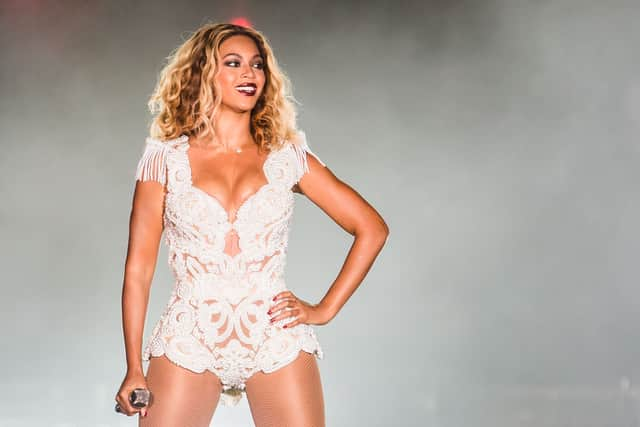Does Beyoncé write her own songs? What are her most well known credits - why do her songs have so many writers
and live on Freeview channel 276
Beyoncé is taking the UK by storm with her 30+ song strong Renaissance tour concerts, which have wowed crowds in Cardiff, Edinburgh and Sunderland ahead of five nights at London's Tottenham Hotspur Stadium.
The Renaissance world tour is in support of her recent album of the same name. The record was released last year and incorporated house music and dancefloor-focused Afrobeats - seen as a critical and commercial success, topping the charts in both the UK and US.
Advertisement
Hide AdAdvertisement
Hide AdBut one of the more surprising things about the record was the sheer number of writers credited as having a part in its composition. As many as 25 names can be attached to one track (’Alien Superstar’), but while songwriting is often a collaborative effort, surely that’s over-egging it a bit. Too many cooks and all that.
So why do Beyoncé’s songs have so many writers and co-writers working on them, and is she at least a part of the creative process? Here is everything you need to know.
Does Beyoncé write her own songs?


Yes. By and large, Beyoncé writes all of her own songs. She is credited as the lead songwriter on each of Renaissance’s 16 tracks, and is credited with writing all of the songs on Lemonade, too. But as we’ve mentioned, some of her biggest hits have been co-written with up to 25 other people...
Why do Beyoncé songs have so many writers?
Beyoncé’s tracks have always come with a bucketload of writers and collaborators attached to them, so Rennaisance’s bulging credits list is nothing new. In fact, Lemonade - released in 2016 - boasted a whopping 72 writers other than Beyoncé herself.
Advertisement
Hide AdAdvertisement
Hide AdBut really, many of those names weren’t songwriters in the ‘traditional’ sense (ie, sitting together in a room and working on lyrics or melodies), and instead, Beyoncé’s mass cooperation with other musicians is more influenced by intellectual property law, sampling (using a portion of an original sound recording in another recording) and interpolation (when a part of a recording is re-recorded and turned into something new).
Sampling and interpolation have been common practises for decades, but in modern pop music, it’s more prevalent than ever. In fact, many Beyoncé songs sample songs that were already sampling other songs. All of the song-writers involved in that family tree of music need to be credited.
For example, during the outro for Beyoncé’s ‘Hold Up’, a small section of the hook from Soulja Boy’s 2008 song ‘Turn My Swag On’ is used. All of that track’s writers need to be credited under intellectual property law, giving Soulja Boy, as well as the song’s co-writers Natural Disaster and Antonio Randolph, their due.
It’s worth noting that it is a relatively new practice to credit everybody so exhaustively. As sampling gets more and more widespread, and big name artists get more and more precious about their music being used by others in a music industry still adapting to the ever flowing tide of new technologies and listening habits, such crediting is being done more so out of an abundance of caution.
Advertisement
Hide AdAdvertisement
Hide AdSongwriting credits were retroactively added to Olivia Rodrigo’s 2021 album ‘Sour’ for instance, due to apparent similarities on songs that were later found to be interpolations of other compositions. After Rodrigo innocently mentioned that Taylor Swift’s ‘Cruel Summer’ served as inspiration for the bridge of her song ‘Deja Vu’, three writers’ names - Swift, Jack Antonoff and St. Vincent - had to be credited.
While at first, a paragraph of text laying out the ‘writers’ on a given track may look to a cynic as if Beyoncé needed some kind of ‘help’ during the writing stage, or that her artistic essence has somehow been buried under a mountain of auxiliary names stripping away her creativity, it actually speaks more to the rich tapestry of influences she is drawing from.
Extensive crediting should be something to applaud, and with latest album Renaissance incorporating house music and dancefloor-focused Afrobeats, not only will the artists providing musical inspiration get a nice boost in royalty cheques, at the very least including them on the album notes will turn a new audience onto them.
With Beyoncé calling on the history of Black music in her own compositions, that she is respectfully crediting everyone so thoroughly allows those names to be seen properly for the contributions they’ve made, not just to Beyonce’s hits, but to music in general.
From our sister title PeopleWorld: The designer behind Beyoncé's blue dress
Comment Guidelines
National World encourages reader discussion on our stories. User feedback, insights and back-and-forth exchanges add a rich layer of context to reporting. Please review our Community Guidelines before commenting.
